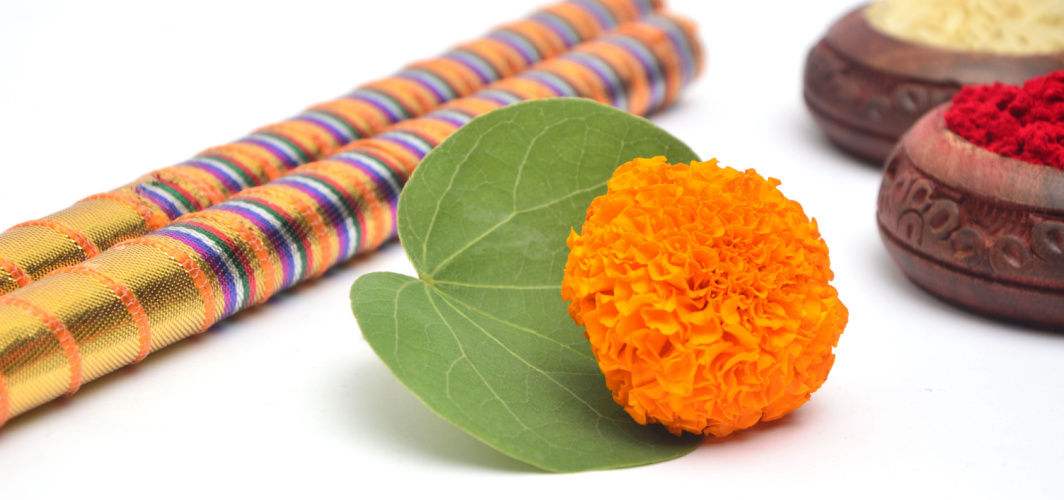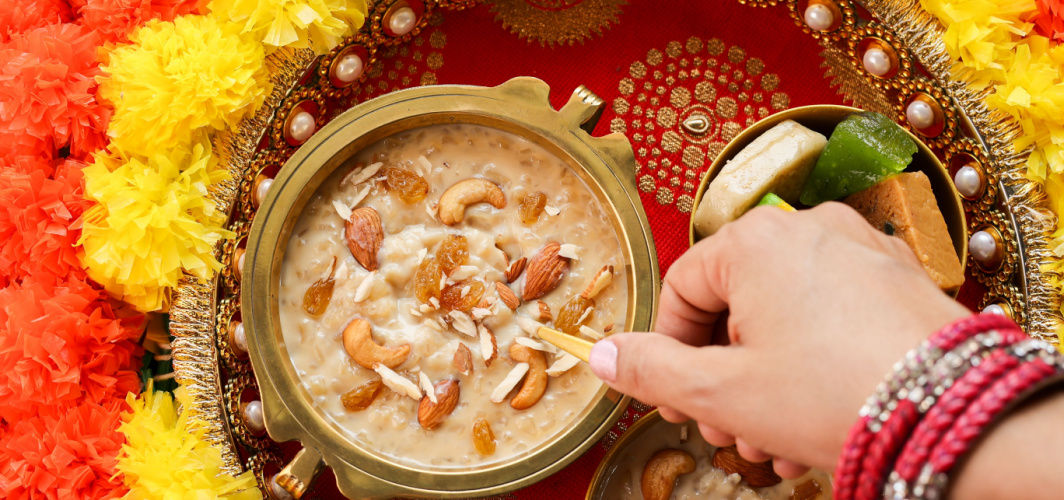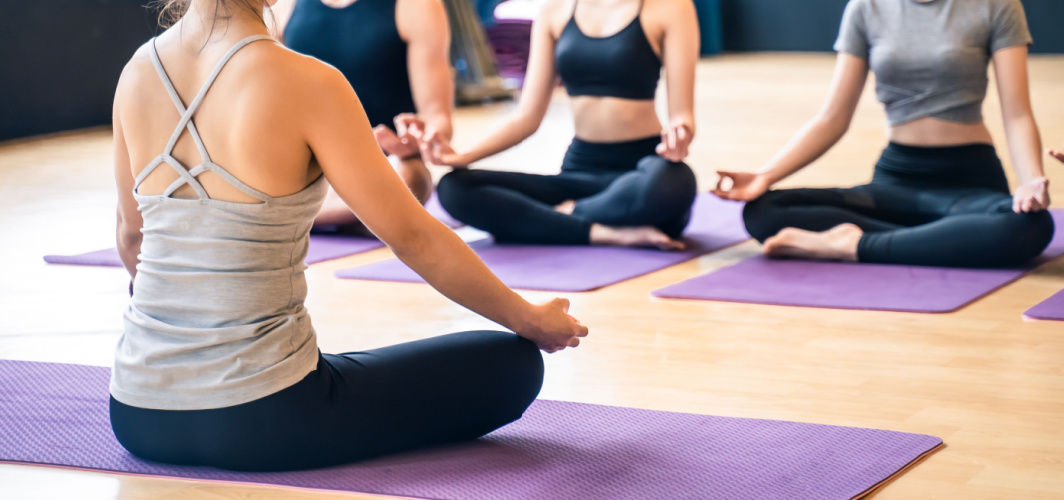Diabetes Management
How To Stay Energised During Dandiya Night?
2 min read

Dandiya nights are a quintessential part of Navratri celebrations. These dance events might go on for hours and might leave you drained, hence it is important for you to take care of a few things to stay energised throughout. Here are some tips:
1. Eat Consciously
- Eat at least 1 hour before dandiya. Have a balance of proteins and carbohydrates to keep you going for long.
- Getting dehydrated while dancing is quite common. Ensure drinking plenty of water to maintain your stamina and stay refreshed.
2. Blend Comfort with Style
- Rather than going for heavier clothes, opt for clothes that allow you to move freely. As dandiya involves a lot of movements, your attire should not restrict your dance. You should choose comfortable footwear to prevent fatigue and discomfort.
3. Take Care of Your Nutrition Intake
- Before heading to the Dandiya event, have a balanced meal that includes complex carbohydrates, lean protein, and healthy fats. This will provide you with sustained energy.
- During the event, opt for light snacks like fruit chaat, roasted makhana (fox nuts), or a handful of nuts to keep your energy levels stable.
4. Take Breaks
- Dandiya nights can be long, so it's essential to take breaks in between. You can find spots with good airflow to avoid overheating.
5. Monitor Your Blood Sugar
- If you have diabetes, it's crucial to monitor your blood sugar levels regularly. Dancing can impact your glucose levels, so be prepared to make any necessary adjustments. Ensure you carry fast-releasing sugars like glucose powder glucose tablets honey or sugar in case you experience hypoglycemia or low sugar these should be easily accessible to you to correct the situation.
6. Keep Yourself Replenished
- As the night draws to a close, have a light, balanced snack to replenish your energy. A small serving of yoghurt or a piece of fruit can be a good choice.
Conclusion
Dandiya nights are all about joy, music, and dance. With these tips, you can ensure you have the energy to dance the night away while also taking care of your well-being. Enjoy the vibrant celebrations of Navratri to the fullest!
Diabetes Management
Consult Top Diabetologists
View AllLeave Comment
Recommended for you

Diabetes Management
5 Healthy Snacks for Diabetics During Navratri
Navratri has begun, and individuals with diabetes can easily relish the festive snacks with healthier adaptations. Baked gujiya with whole wheat and coconut-jaggery stuffing, healthy pakoras with vegetable swaps and olive oil, low-calorie thandai using sugar substitutes and nuts, Khandvi made from gram flour and yogurt, and kheer prepared with brown rice, jaggery, and plenty of dry fruits offer tasty options for diabetics. Enjoying the festival while managing blood glucose levels is possible with these diabetic-friendly delights.

Diabetes Management
5 Best Exercises To Manage Diabetes
Five exercises that are best for managing diabetes are walking, strength training, swimming, yoga and High-Intensity Interval Training (HIIT). Walking can help lower blood sugar levels, make your heart healthier, and help you manage your weight. Strength training like squats, lunges, presses, rows, and planks can improve insulin sensitivity and cardiovascular health. Swimming keeps your overall body fit, while yoga can help reduce stress and anxiety. HIIT can enhance insulin utilization and cardiovascular fitness.

Diabetes Management
Diabetic Neuropathy: Why the Burning Sensation in Your Feet Should Not be Ignored?
Diabetic neuropathy refers to nerve damage caused by diabetes, often leading to a burning sensation in the feet. Ignoring this symptom can be dangerous as it indicates nerve damage progression. Diabetic neuropathy can cause loss of sensation, ulcers, infections, and foot complications. Seeking medical attention is crucial to prevent further complications.
Subscribe
Sign up for our free Health Library Daily Newsletter
Get doctor-approved health tips, news, and more.
Visual Stories

8 Fruits That are Incredibly Healthy for Diabetes
Tap to continue exploring
Recommended for you

Diabetes Management
5 Healthy Snacks for Diabetics During Navratri
Navratri has begun, and individuals with diabetes can easily relish the festive snacks with healthier adaptations. Baked gujiya with whole wheat and coconut-jaggery stuffing, healthy pakoras with vegetable swaps and olive oil, low-calorie thandai using sugar substitutes and nuts, Khandvi made from gram flour and yogurt, and kheer prepared with brown rice, jaggery, and plenty of dry fruits offer tasty options for diabetics. Enjoying the festival while managing blood glucose levels is possible with these diabetic-friendly delights.

Diabetes Management
5 Best Exercises To Manage Diabetes
Five exercises that are best for managing diabetes are walking, strength training, swimming, yoga and High-Intensity Interval Training (HIIT). Walking can help lower blood sugar levels, make your heart healthier, and help you manage your weight. Strength training like squats, lunges, presses, rows, and planks can improve insulin sensitivity and cardiovascular health. Swimming keeps your overall body fit, while yoga can help reduce stress and anxiety. HIIT can enhance insulin utilization and cardiovascular fitness.

Diabetes Management
Diabetic Neuropathy: Why the Burning Sensation in Your Feet Should Not be Ignored?
Diabetic neuropathy refers to nerve damage caused by diabetes, often leading to a burning sensation in the feet. Ignoring this symptom can be dangerous as it indicates nerve damage progression. Diabetic neuropathy can cause loss of sensation, ulcers, infections, and foot complications. Seeking medical attention is crucial to prevent further complications.